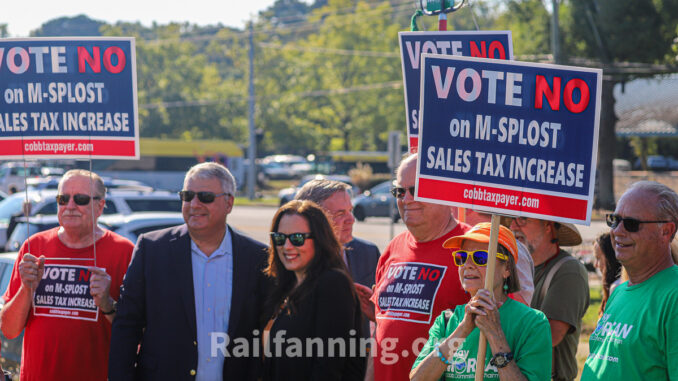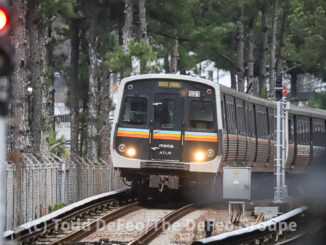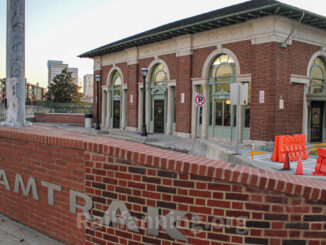
(Railfanning.org) — Voters in two metro Atlanta counties defeated proposals to increase the sales tax to fund transit.
In Cobb County, about 63% of voters rejected a Mobility Special Purpose Local Option Sales Tax (M-SPLOST) that would have raised roughly $11 billion over three decades. In Gwinnett County, roughly 53% of voters rejected a similar Transportation Special Purpose Local Option Sales Tax (T-SPLOST), a 1%, 30-year sales tax projected to raise $17 billion.
Broadly, the proposals would have expanded bus routes in the counties and included new Bus Rapid Transit (BRT) options. In Cobb County, several state lawmakers joined business groups to oppose the tax.
Transit expansion — and commuter rail — has been a hot-button topic in metro Atlanta for years. Despite the discussion and various proposals, there has been little tangible expansion.
Several metro Atlanta counties have transit systems, and integration among systems has long been a concern.
In November 2014, voters in Clayton County voted in favor of joining the Metropolitan Atlanta Rapid Transit Authority. However, in March 2019, Gwinnett County voters rejected a proposal to expand MARTA into their county.
In February 2020, the four jurisdictions in which MARTA provides service passed the 15th amendment to the Rapid Transit Contract and Assistance Agreement (RTCAA). The vote extends the full-penny sales tax that funds MARTA bus and rail service in the city of Atlanta and Clayton, DeKalb and Fulton Counties through 2057.
For its part, MARTA officials are advancing several projects, including an Atlanta streetcar expansion and its own BRT projects, including a route along Georgia Highway 400.




